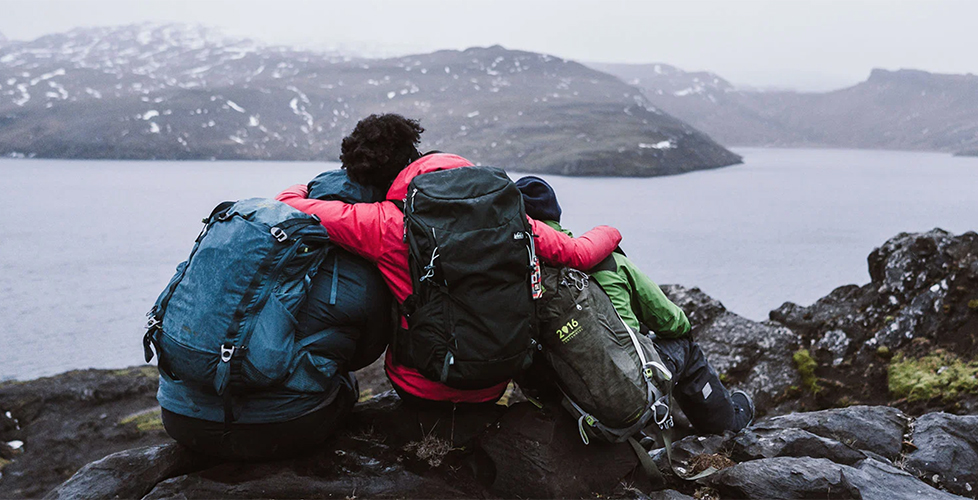On Wednesday, REI Co-op said it was taking another step to raise its product standards for how brands are addressing carbon reduction, inclusive marketing practices and cultural designs in the products they make and sell to REI.
The standards first launched in 2018 as a way for the retailer to advance sustainability across the industry have expanded to include additional areas of impact, including a broader focus on addressing climate change and support of diversity and inclusion.
“Product is the largest impact footprint that we’re all going to have, and I think creating high standards for what we expect out of the products that we will offer to our customers is more important than ever,” said Chris Speyer, REI’s VP of product, in an interview with SGB Executive.
The standards also include voluntary product certifications or preferred attributes, including recognition for certified products to Climate Neutral, bluesign, or other leading standards supporting organic ingredients, recycled materials or fair trade. REI is committing that, by 2030, all products on its shelves will have a preferred attribute so that every purchase at REI supports a more equitable planet.
Speyer said that with vendor adherence to the initial 2018 standards set for fall 2020, it became an appropriate time to explore the standards’ next evolution.“There was a very natural timeline already in place that fit well with a lot of pressure that we see on climate and in a moment in time when commitment to diversity and inclusion is critical,” he continued.
REI’s standards program changed from “Product Sustainability Standards” to “REI Product Impact Standards” to reflect an expanded focus. The Standards were formulated to evolve and ensure that the Co-Op proactively engages with its industry partners on pressing and meaningful topics. Since the launch, REI said climate change is the greatest threat to the future of the outdoors and its business and outlined key commitments to advance racial equity at REI and the industry.
Nicole Browning, REI’s manager of marketing inclusion, told SGB Executive that the updates also come as the pandemic has underscored the many benefits of spending time outdoors and the barriers to access for groups that are underrepresented in the outdoors. She said, “This work is rooted in our belief that everyone should feel safe and welcome and affirmed when they step outside their door, no matter who they are, where they live, or how they define being outside, how they define their relationship with the outside.”
Browning added, “We know that our vision of safety and belonging isn’t a reality for everyone and part of that is connected to the limited definition of what constitutes an authentic outdoor experience that has persisted for a long time. So, this is one step where we’re looking at reducing the barriers to belonging that can show up in outdoor products and looking forward to working with brands to provide more relevant offerings so that people feel more welcome.”
The new guidelines were shaped by partner brands of various sizes and product categories. More than a dozen inclusion and sustainability partners — including nonprofits, advocates and ambassadors from across the outdoor industry and community —were also consulted. The guidelines include four updates:
- Carbon footprint measurement and reduction — With plans to more than halve its carbon footprint by 2030, REI is holding itself accountable for each unit of carbon it emits in its operations and products. REI also aims to engage brand partners to reduce the emissions embedded in their products and expects all brand partners to create an action plan by the end of 2021 to measure their annual carbon footprint and reduce emissions embedded in products.
- Incorporating preferred attributes to products — REI expanded the list of third-party certifications that brands are encouraged to utilize and actively seek products that include these preferred attributes. The Co-Op is setting a target that 100 percent of products on its shelves contain a desired feature by 2030 so that every purchase at REI encourages better ways of doing business.
- Inclusive marketing practices — By the end of 2021, REI expects brand partners to establish guidelines for marketing assets, photo casting and photography practices to ensure diverse representation. Brands must also ensure they do not use language that negatively impacts underrepresented groups to describe a product, collection, color, or design.
- Cultural or culturally inspired designs — To assure diverse artists, designers and communities of origin are appropriately credited and compensated for their work, REI expects brands to implement strategies to prevent plagiarism, theft and inappropriate use of designs, patterns and names that are culturally meaningful to and originate from native, indigenous or other communities underrepresented in the outdoor industry.
Concerning sustainability, Speyer said areas receiving greater attention as part of the changes include fair and safe supply chains, chemical management, animal welfare, and climate environmental stewardship.
“Those will be our core sustainability values,” said Speyer. “We will be working much more closely with vendor partners on their carbon footprint in the emission reduction action plan that will be put in place, and we will also be, in terms of our sustainability assessment, modifying and enhancing that body of work for our members to have more clarity on where they stand compared to the standards that we’ve created and then how we create working plans together.”
Speyer further said REI will provide “more direction and clarity” to its suppliers on the preferred sustainability attributes.
Browning said REI would ask brands to take four steps to evolve their brand and the outdoor image to demonstrate more actively diversity and inclusion and expand representation and opportunity for people of color and other underrepresented groups in the outdoor industry.
The first step includes establishing guidelines for diversity in marketing assets and photo casting as well as production. Said Browning, “So thinking about diverse representation and that applies to race, age, gender identity and expression, body size and disability.”
The second is to put creative consultants in place to prevent language that could negatively impact underrepresented groups, including describing a product, product name, color, design, or patterns. Vendors will be encouraged to think about more expansive offerings in terms of the colors and patterns, including whether they’re addressing a full range of skin tones.
Finally, brand partners will be encouraged to step up efforts against what’s been historically called native-inspired design. Said Browning, “So ensuring that we’re amplifying authentic artistry and that diverse artists and designers, as well as their communities of origin, are properly receiving credit for their work, that they’re compensated for their work, and that we can avoid the forms of cultural background plagiarism that comes through when we’re talking about cultural appropriation.”
For consumers, REI plans to upgrade its website to highlight the preferred attributes and REI’s overall commitment to sustainability and diversity and inclusion. Speyer said the 2018 launch of the environmentally-friendly standards saw “amazing feedback” from consumers and hailed as a new retail model in the press. For REI Co-Op members, the standards provide confidence in the values behind REI’s product.
Speyer said, “We anticipate we’ll just continue to enhance the fact that when you walk into an REI store, you’re seeing a very carefully curated set of brands and products that you can feel good about purchasing.”
The product standard update comes as the outdoor category has been receiving more attention as Americans have flocked to outdoor activities with many indoor activities limited due to the pandemic.
“It has really driven home how important the outdoors are to both mental and physical wellbeing,” said Speyer. “And so, as people are thinking about different ways of coping with a historically impactful pandemic, we’ve seen our customers have an appetite to get outside and they’re thinking carefully about the products that they choose to do it. For me personally and I think for REI, it’s been gratifying to see that the co-op can play a real role for good in terms of keeping people mentally and physically healthy as they cope with this highly unusual time.”
Browning also said the pandemic’s impact on mental, physical, health and safety “hasn’t been evenly born” and also demonstrates the urgency behind addressing access challenges and outdoor’s inclusivity messaging. Said Browning, ”Addressing those kinds of inequities is more urgent now than ever.”
Asked about learnings since the product standard program was launched, Speyer stressed the importance of collaboration and education in partners working together. Said Speyer, “We’ve tried really hard to make sure what this isn’t sort of punitive work but it is a partnership to make all brands and the industry better. That has been a big learning. Candidly, we see different challenges based on different states of businesses. But what we see in common is that when leadership makes a commitment to how their brand and their product is going to show up in general, we have great success. And we have seen that, by and large, with most of the partners that we have in our stores now.”
Browning likewise pointed to the value of a “collective and cooperative action approach” in addressing issues around inclusivity & diversity, including working with not only brands but non-profits such as Latino Outdoors, Outdoor Afro and Black Girls Do Bike.
She pointed, as an example, to efforts by Prana, Columbia Sportswear and Gregory to expand size availability for women plus-size products. She said. “It’s through those brands working together even though they might be in a competitive space that we’ve been able to kind of go further together and offer our customer more options.”
Browning also highlighted Rumpl’s artist program that brings attention to collections designed by Native American artists in a partnership with First Peoples Fund, an organization supporting and empowering Native communities and artists.
“It’s partnerships like those between brands and nonprofits and artists and culture bearers that are really inspiring to me in thinking about where the industry can continue to make progress,” said Browning. “But certainly, it’s more brands working together towards similar topics. This isn’t a space where competition is as valuable as partnership in just serving our customer in a better way.”
Photo courtesy REI
















